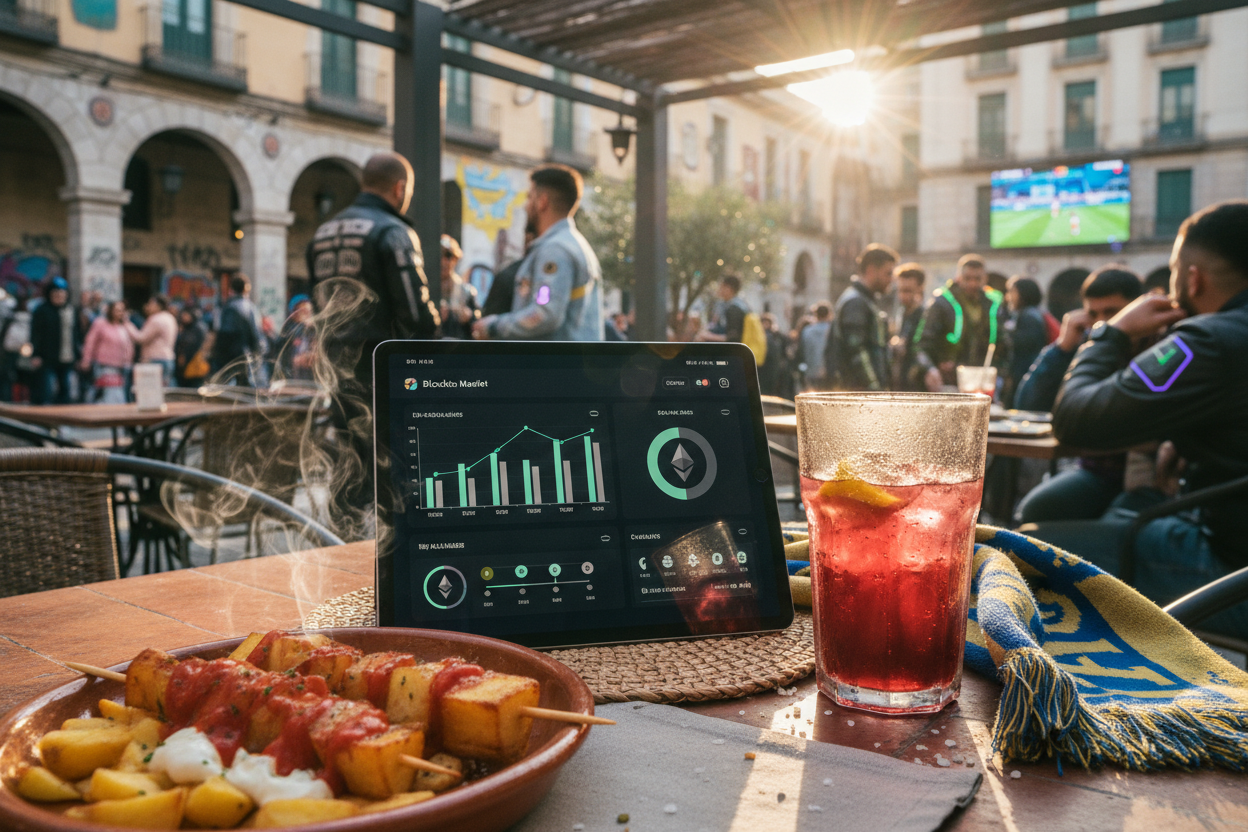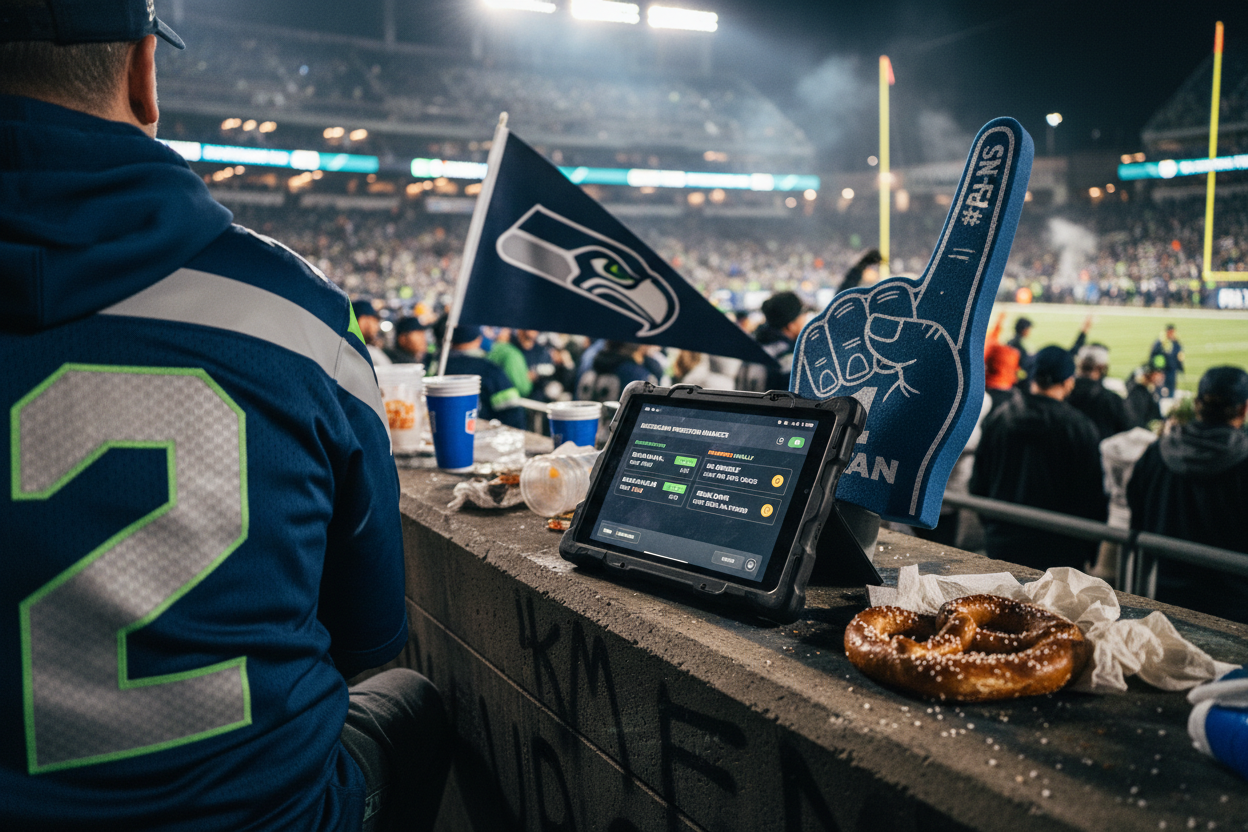How On-Chain Prediction Markets Are Disrupting Traditional Sportsbooks: No Geo Blocking, No Limits

Traditional sportsbooks have long dominated the sports betting world, but their reign is being challenged by a new breed of platforms: on-chain prediction markets. By leveraging blockchain technology, these decentralized betting platforms are breaking down barriers that have limited bettors for decades. No geo blocking. No arbitrary limits. Just open, transparent markets where anyone can trade on sporting outcomes with crypto in real time.

Why Blockchain Sports Betting Wins Where Sportsbooks Falter
The core promise of on-chain prediction markets is simple: freedom and fairness. Traditional sportsbooks operate within a maze of regulations, imposing geo-restrictions that lock out users from entire countries or regions. If you’ve ever tried to access your favorite sportsbook while traveling only to be hit with a “not available in your jurisdiction” message, you know the frustration.
On decentralized prediction markets, those walls don’t exist. Platforms like Polymarket and others run on public blockchains such as Polygon or Solana, letting users from around the globe participate without VPNs or workarounds. As highlighted in a recent analysis, this global accessibility is a game-changer for both casual fans and serious bettors alike.
“It’s open to anyone in the world, no geo restrictions; people are trading directly. ”
– Medium · Belkacem Berchiche
No Limits: High-Stakes Action Without Arbitrary Caps
Traditional sportsbooks often cap bet sizes to manage their own risk profiles. On-chain prediction markets flip this model on its head. As long as there’s liquidity in the market, you can stake as much as you’re willing, no questions asked. This is particularly attractive for high-stakes bettors who routinely bump up against maximum bet limits elsewhere.
Key Advantages of Decentralized Betting Platforms
-

Global Accessibility: On-chain prediction markets operate on public blockchains, allowing users worldwide to participate without geo-blocking or regional restrictions, unlike traditional sportsbooks.
-

No Betting Limits: Decentralized platforms typically do not impose maximum bet sizes, enabling users to wager any amount as long as there is sufficient market liquidity—ideal for high-stakes bettors.
-

Transparency and Trust: All transactions and outcomes are recorded on public blockchains, ensuring transparency, auditability, and reduced risk of fraud or manipulation.
-

Lower Costs: By eliminating intermediaries, decentralized prediction markets offer lower fees and higher potential returns compared to traditional sportsbooks.
-
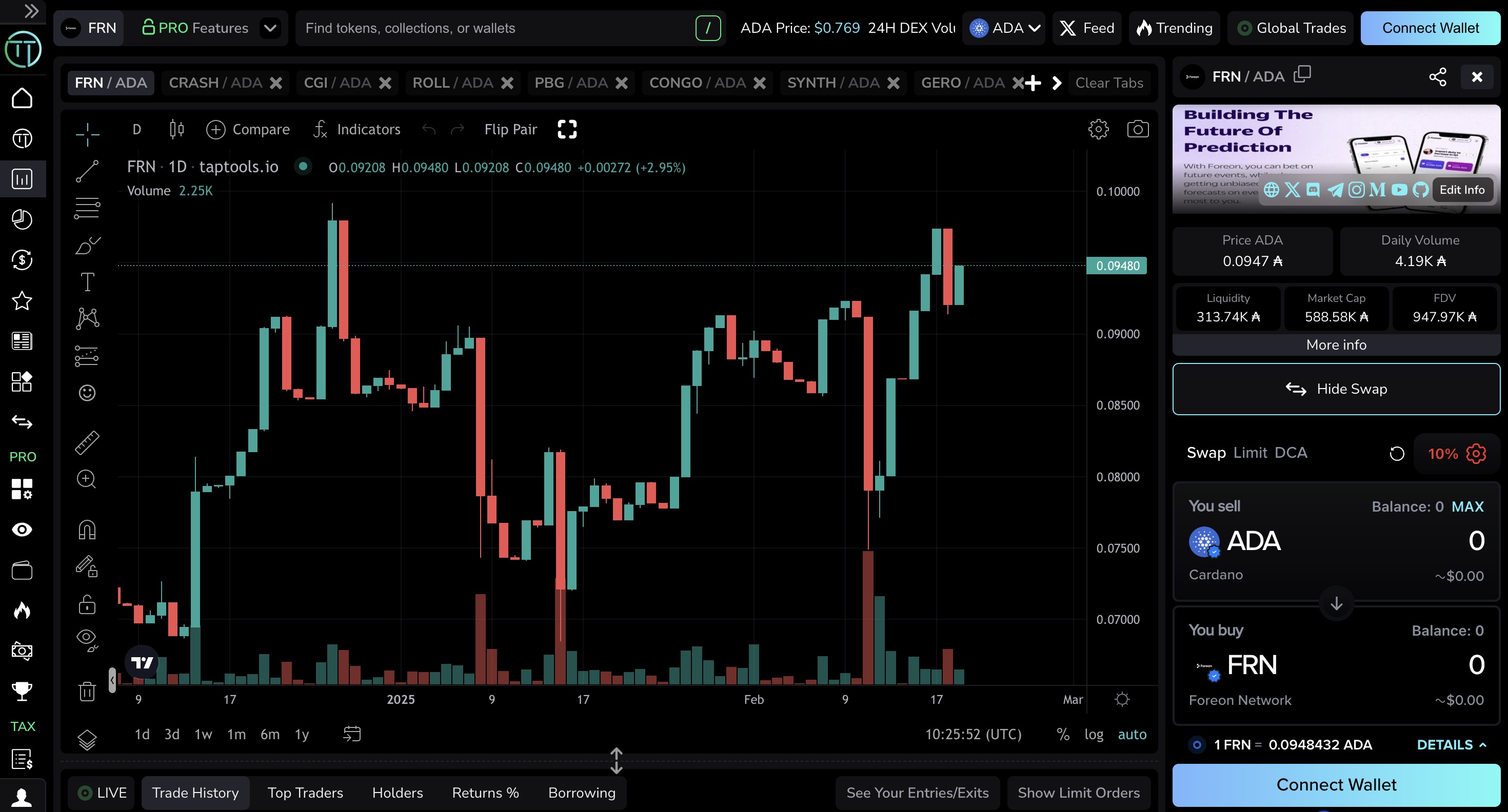
Direct Market Trading: Users can enter and exit positions freely, trading shares of event outcomes much like financial assets, which increases liquidity and flexibility.
-
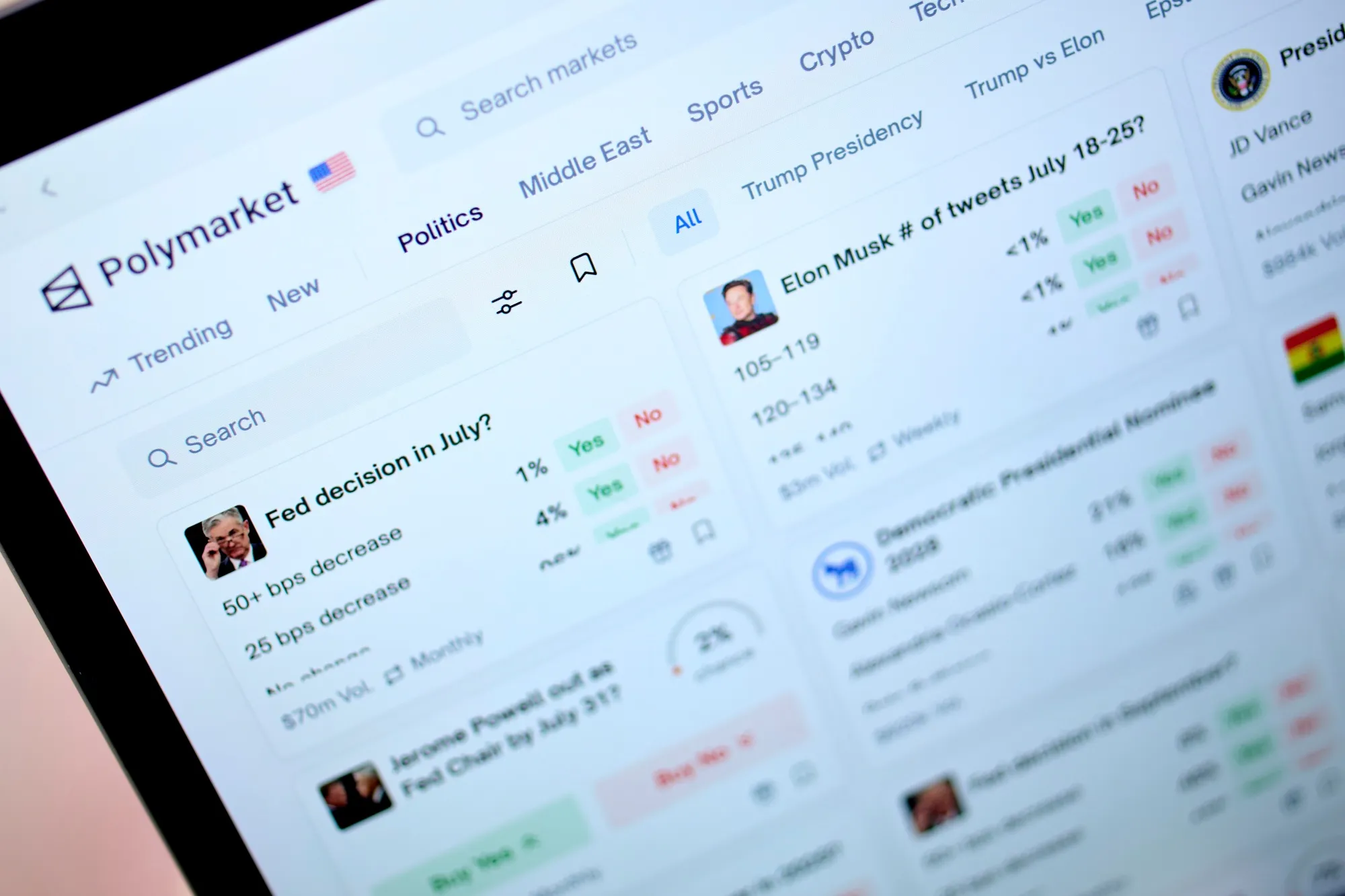
Notable Platforms: Leading examples include Polymarket (built on Polygon, offering a wide range of markets) and Kalshi (a fully CFTC-regulated event exchange).
The ability to enter and exit positions freely also introduces a new layer of flexibility. Traders aren’t just locked into waiting for event settlement, they can sell their position at any time if market sentiment shifts or if they want to cash out early, mirroring the fluidity of financial trading but applied to sports outcomes (source).
Transparency and Trust: The Blockchain Edge
The blockchain backbone isn’t just about accessibility, it’s about trust and transparency too. Every transaction is recorded immutably on-chain, making it nearly impossible for results or payouts to be tampered with behind closed doors. This level of openness addresses one of the most persistent criticisms of traditional bookmakers: opaque rules and questionable settlement practices.
No more worrying about whether your big win will be voided due to fine print or sudden changes in terms; everything is auditable by anyone at any time.
Lower Fees Mean Better Odds, and Bigger Payouts
Savvy bettors know that every percentage point matters when it comes to odds and payouts. Because decentralized platforms eliminate intermediaries (and their hefty margins), fees are typically much lower than those charged by conventional sportsbooks (source). That means more value stays with the user, whether they’re betting $10 or $100,000.
Another overlooked advantage is instant cashout betting. On-chain prediction markets let users exit their positions in real time, mirroring the best features of financial exchanges. If you want to lock in a profit or cut your losses before an event concludes, you’re not at the mercy of slow-moving customer support or opaque settlement processes. The blockchain handles it all, providing near-instant liquidity as long as there’s active trading volume.
This market-driven approach also means odds are more responsive and less prone to manipulation. Instead of a single bookmaker setting the lines, collective user sentiment and capital flows determine prices. As highlighted on Reddit’s r/solana, platforms leveraging networks like Solana can offer lightning-fast transactions and minuscule fees, features that traditional sportsbooks simply can’t match (see top decentralized platforms).
“With Solana’s speed and low fees, it feels like a real opportunity for fully on-chain prediction markets to offer something cleaner and more transparent. ”
– Reddit · r/solana
What About Regulation?Navigating the Legal Maze
It would be naive to ignore regulatory headwinds. While some platforms like Kalshi have secured CFTC approval in the U. S. , others, such as Polymarket, have faced geo-blocking or outright bans in certain jurisdictions (regulatory context). For users, this means doing due diligence is essential: always check whether your chosen platform complies with local laws before betting.
Still, the broader trend is clear. As regulatory environments evolve, more jurisdictions are recognizing the benefits of transparent, auditable markets built on public blockchains. The frictionless cross-border nature of crypto sports betting is likely here to stay, and will only grow stronger as legal clarity improves.
The Future: Decentralized Betting Platforms Are Just Getting Started
The disruption we’re witnessing is still in its early innings. As user adoption grows and liquidity deepens across major events, from Champions League finals to presidential elections, the advantages of on-chain prediction markets over traditional sportsbooks become increasingly difficult to ignore.
Key Trends in Blockchain Sports Betting
-

Global Accessibility and No Geo-Blocking: Decentralized prediction markets like Polymarket operate on public blockchains, enabling users worldwide to participate without the regional restrictions imposed by traditional sportsbooks.
-

No Betting Limits: On-chain platforms typically do not impose maximum bet sizes, allowing users to wager any amount as long as there is sufficient market liquidity, unlike conventional sportsbooks that cap bets to manage risk.
-

Transparency and Trust: All transactions and outcomes are recorded on public blockchains, ensuring transparent, tamper-proof betting and reducing the risk of fraud or manipulation.
-
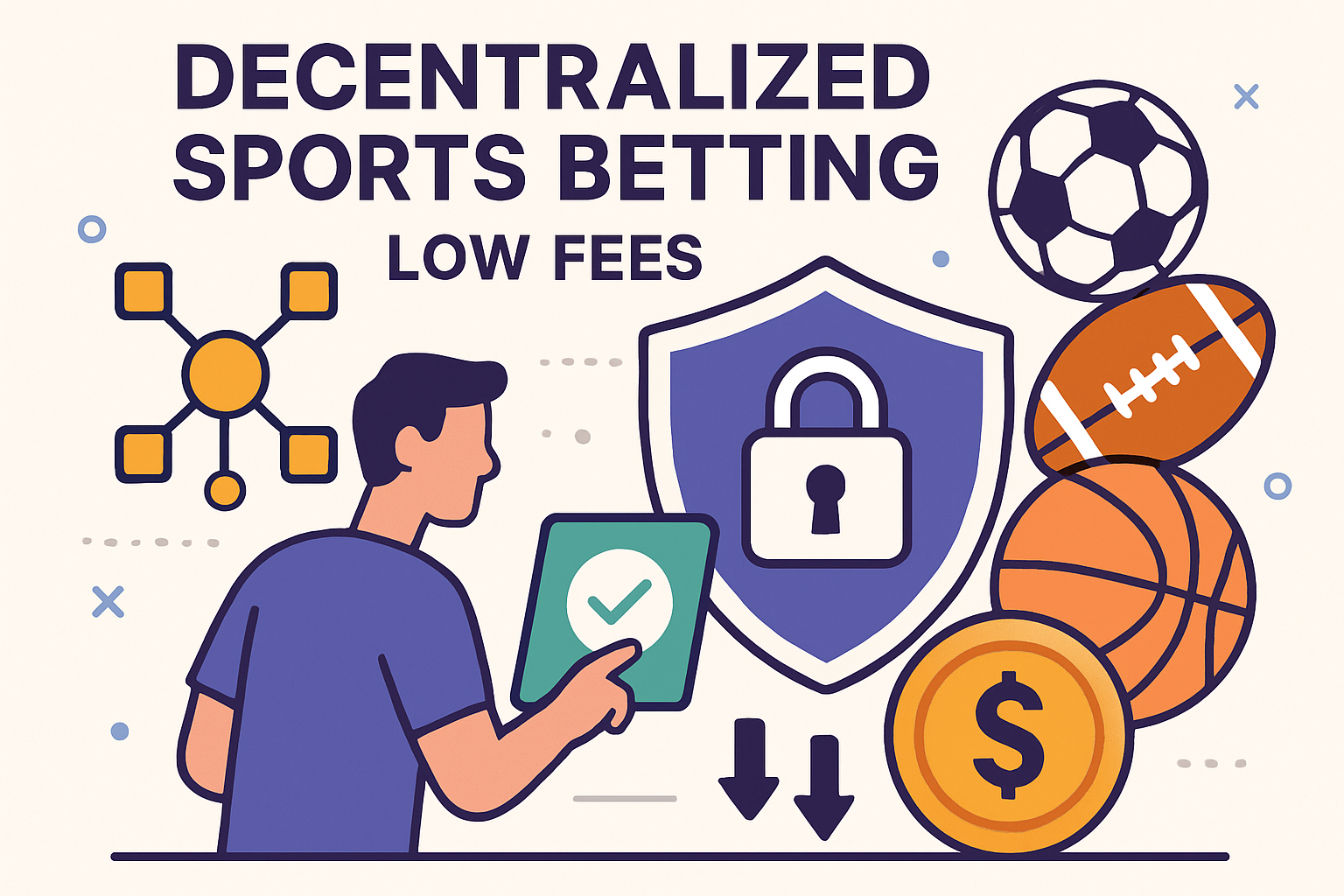
Lower Costs and Higher Payouts: By removing intermediaries, decentralized markets reduce fees and operational costs, increasing potential returns for users compared to traditional betting platforms.
-

Regulatory Innovation: Platforms like Kalshi have achieved CFTC approval in the U.S., demonstrating how some prediction markets are working within regulatory frameworks to expand access and legitimacy.
-

Instant Entry and Exit: On-chain prediction markets let users enter or exit positions at any time by trading event shares, offering flexibility and liquidity not always found in traditional sportsbooks.
-

Anonymous and No-KYC Betting: Many blockchain-based platforms offer anonymous betting with minimal sign-up requirements, appealing to privacy-focused users and those in regions with restrictive gambling laws.
Expect further innovation around user experience too: seamless wallet integrations, no-KYC onboarding for privacy-focused bettors, and composable DeFi features that let users hedge or leverage their bets like never before (see more on platform differences). With each upgrade, these decentralized systems chip away at what little moat legacy bookmakers have left.
If you’re seeking a fairer alternative with true global access, without geo blocking or arbitrary limits, on-chain prediction markets should be squarely on your radar. The technology is here. The liquidity is building. And for those willing to adapt, the future of sports betting has never looked more promising.




